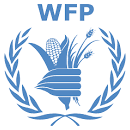Reporting and Information Management Associate Food Cluster
الوصف الوظيفي
لقد انتهت صلاحية هذه الوظيفة في 2023-07-15
تصفح أحدث الوظائف
عند التقدم لاية وظيفة عن طريق الانترنت، لا تقم بإعطاء معلومات بطاقة الأعتماد او أية معلومات بنكية / مالية لصاحب عمل. نصيحة من جوبس لحمايتك :
آخر الوظائف المعلنة بواسطة
World Food Programme - برنامج الأغذية العالمي
المسمى الوظيفي
تاريخ النشر
Programme Assistant GIS
القدس
7, Jul
Business Support Assistant
القدس
1, Jul
Logistics Assistant
قطاع غزة
1, Jul
Logistics Associate
قطاع غزة
1, Jul
Programme Associate (Social Protection)
رام الله والبيرة
24, Jun
Logistics Assistant (Ashdod)
القدس
17, Jun
Security Associate
قطاع غزة
14, Jun
Business Support Assistant- Security
قطاع غزة
14, Jun








